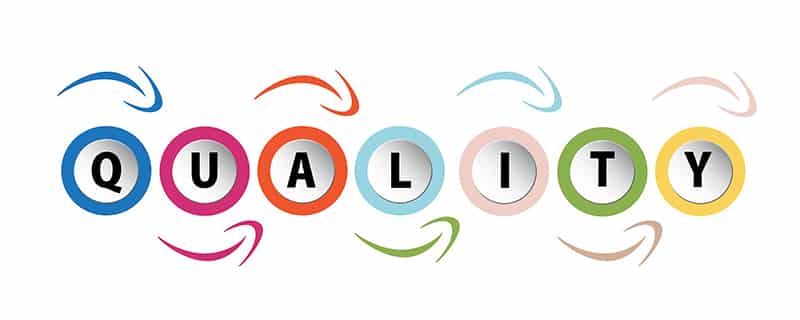Accreditation versus certification
4 min. leestijd

In a nutshell…
- A certificate is a written statement that is received as soon as it has been established that a product, process, person, quality system or service meets certain (standard) requirements.
- These requirements are pre-established in a standard at national, European or global level.
- If you are awarded a certificate, it is often possible to use a quality mark. The quality mark serves as proof and is often added to packaging or marketing material.
- When a certificate or quality mark is issued by an accredited certification body (audit agency), this gives extra confidence. That is because it means that the certification body meets certain requirements.
What is certification?
In the case of certification, an independent certification body checks whether (for example) the management system of an organization meets a certain standard (or standards). A certification can be carried out with (under) accreditation or not under accreditation.
Why certification?
Certificates help consumers and businesses to make their purchase choices. Producers or service providers use the certificate to strengthen their competitive position. They can use it to show customers/clients that the product, service or management system of an organization meets certain requirements (standards). Standards are not laws, but they do have a certain status.
Is a certificate required?
There are cases where a certificate is required. For example, it can be made mandatory by the government or by insurers, but it can also be that a client requires a certificate from its supplier. In addition, it can be used as a form of self-regulation: companies and sector organizations sometimes make mutual agreements and have them checked by an independent certification body.
What are the different types of certifications?
Certifications are available for:
- Product, process or service
The certificate demonstrates that the product, process or service meets certain requirements (standards). For example, for safety, quality or the environment. - System
The certification shows that an organization has, for example, an environmental management system that meets certain requirements (standards). - Person
The certificate indicates that the person has certain knowledge and skills.
Quality mark
A quality mark may belong to a certificate. A consumer sees at a glance that it is a reliable party, product or service and this helps them to make their purchase choice. For the producer or service provider it helps to surpass their competitive position.
What is a standard?
As indicated, certificates and quality marks are awarded as soon as a batch, product, system or service meets a predetermined standard. Standards consist of carefully established frameworks and requirements. Once you meet a standard, this is an important indication that a batch, product or service meets the required quality and/or safety.
Amendment of a standard
There are standards committees that periodically assess whether an established standard is still adequate, or whether it is necessary to update it. If the standard is adjusted, it is also determined how the assessment process is changed. As a certified organization, you are given an implementation period to implement the changes. A new assessment will be carried out by the certification body, based on the adjusted requirements.
What is accreditation?
The formal meaning is: “The recognition by an authoritative organization that another organization or person is competent to perform a particular task”.
Every country has an authoritative organization that can grant accreditations to certification bodies or conformity assessment bodies (CAB). In the Netherlands this is the Council for Accreditation (RvA), in Belgium this is the Belac.
It gives confidence when a certification body is accredited. It means that certain requirements are met and there is a certain degree of expertise. In addition, there is a focus on impartiality and independence; for example, the certification body may not simultaneously fulfill an advisory role.
The accreditation process
Accreditation can be obtained by submitting an application to the RvA. It can be requested by a certification, verification and inspection body and by a laboratory. The RvA conducts a preliminary investigation. It then conducts office surveys on an annual basis at the institution that carries out certifications under accreditation, in order to continue monitoring.
Accredited organizations may use an accreditation mark (logo) on certificates and other communications as proof.
Accreditation for Management System Certification (ISO 17021)
Brand Compliance is accredited for ISO 17021 (Registration number C548) and may perform audits under accreditation for ISO 27001, ISO 27701, NEN 7510 and ISO 9001 technical area 33 (information technology) and 35 (other services).
Questions?
If you have any further questions regarding certification, accreditation or other questions, you can contact us at any time via:



